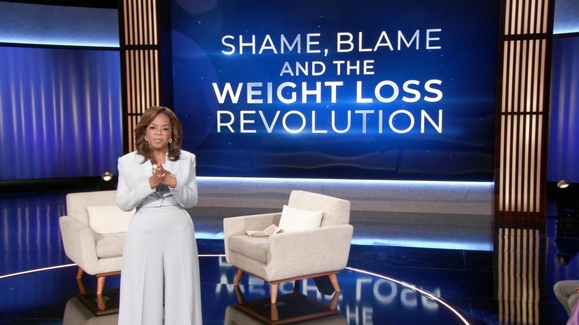
On March 19th, the much-anticipated hour long TV special featuring Oprah Winfrey and her weight loss journey aired. Throughout the special, Oprah discussed her use of weight loss medication and drew light to her past of experimentation with a variety of weight loss targeted diets and exercise plans. She highlighted her past commitment to the company WeightWatchers for the purpose of proving her point that obesity is more of a “disease” than an issue stemming from a lack of self control, and therefore should be treated as such.
There’s no doubt that Oprah has an extremely large fanbase, her followers across social media platforms amassing over 100 million and according to PBS News, while on air, The Oprah Winfrey Show, averaged a consistent 55 million U.S. viewers every week.

This influence can be seen in her past and present relationship with the company WeightWatchers. Upon joining the weight loss company’s board as their spokesperson in 2015, Oprah single handedly caused company sales to skyrocket with, according to CBS News, “its shares more than doubling” following the announcement of the deal. With that being said, upon announcing her recent decision (late Febuary of 2024) to donate her 1.4% of the company’s shares, WeightWatchers faced a 17% drop in stock. From this stock fluctuation, Oprah’s influence over her followers, more specifically those invested in a similar weight loss journey to hers, is clear. The question is, how will Oprah’s special featuring newfound classifications and detailed reflection change the mindset of these followers and does she have the influence through detailing her own experience to alter the, often negative societal perception of obesity?
Long term follower of Oprah and licensed psychotherapist and mental health clinician, Natanielle Cooper, provided valuable insight on the topic, giving her input as both an Oprah follower and professional therapist on the use of medication for the purpose of weight loss through appetite curbing.
Like many, Cooper expressed her “mixed feelings” regarding the topic. She explained that from both a “personal perspective and therapeutic perspective [she worries] about the mental health implications” the publicization of an influential figure, in this case, Oprah’s positive experience with medication usage could have on a viewer, especially one with “disordered eating or a distorted body image” in which this message being sent could be “the wrong kind.”
Cooper drew attention to “a new diagnosis called Orthorexia where people can be overly obsessed with exercise and healthy eating.” With this illness, people end up unintentionally causing “health problems” to themselves as their “body is not getting the right nutrients.” As a result of this illness as well as others similar in nature, Cooper worries that the information on weight loss medication Oprah is endorsing will “get to a person” who will wrongly absorb it. A person who will think a “drug like Ozempic is a way to get the perfect skinny body but Ozempic is a diabetes medication.” Cooper explained the drug could “do a lot of messed up things” to someone if they don’t “have the right body type and chemistry” and wrongly interpret it as medication that could actually be advantageous for their specific situation with food and dieting.
When questioned on whether the special had any effect on how Cooper perceives medication specifically for weight loss in general, she reiterated the past dangers of weight loss medication in that it “had been available over the counter.” She explained that “you could go to a CVS and buy pills which are dangerous because they need to be recommended by a healthcare professional.” Cooper then added that medication specific for weight loss, “shouldn’t be readily available” in this manner “because you could easily overdo [it].”
With that being said, in terms of newer weight loss medication that has to be prescribed, more in similarity to the kind Oprah has recently been using, Cooper detailed the similarly negative effects that can still entail as it “can be administered at home” which she is “unsure” about as a user could notice it working and “want it to work faster and take a double dose and something bad ends up happening”
On the other hand, “In some ways,” Cooper sees how the message Oprah is sending “is a very positive thing” because of what it “normalizes.” According to Cooper, obesity “used to get written off as a failure of human functioning on a person’s part.” Many believe it all comes down to “[watching] what you eat and exercise.” In contrast “it’s so much more complex than that; it’s genetics, it’s socioeconomic status, it’s life stressors,” which is why Oprah’s message is so important. “It’s very normalizing and affirming for people who are struggling with [weight related issues].”
She further emphasized her ambivalence with the issue when stating how “it’s a weird balancing act” because of the “many positives” that entail with Oprah “being open” about her experience which “helps a community of people that also struggle with obesity;” yet at the same time, “can also be dangerous for others that aren’t struggling with obesity but are overly focused with their body size and don’t need to be.”
“This is a disease, this is something that people need medical intervention with and it’s more than what people make it out to be; it’s more of a challenge than people realize.” Cooper credited the special and Oprah’s openness with altering her past perception of obesity as while she “knew it wasn’t a person’s fault,” Oprah “using the word disease definitely helped to further make sense of [the condition].”
According to Cooper, while not directly seeking out information regarding weight loss medication and celebrity experiences with the process, Oprah’s journey “has been so public” that by “default,” she has been a follower of it. Consequently, it’s no doubt that there are many others similar to Cooper in that merely keeping up to date on pop culture would have taken notice of Oprah’s journey and therefore may also view obesity and weight loss medication in a newfound light. As a result, according to Cooper it is imperative that Oprah “communicates the information about these medications clearly” to viewers in order to ensure that they are aware of the many, both positive and negative, side effects that entail in undergoing an experience similar to her own.
Keeping that in mind, Oprah’s publicization of the topic ultimately “gives a community of people hope,” which is extremely valuable in a day and age where misinformation is so easily spread and targeted towards people whose specific condition is not yet fully understood. So while the topic can easily get out of hand when misinterpreted by the wrong person, which in Oprah’s case of being an influential figure with such a large following can easily occur, this special brings society one step closer to “adapting” to the less black and white, more fluid mindset “of how obesity needs to be viewed and handled.”





















